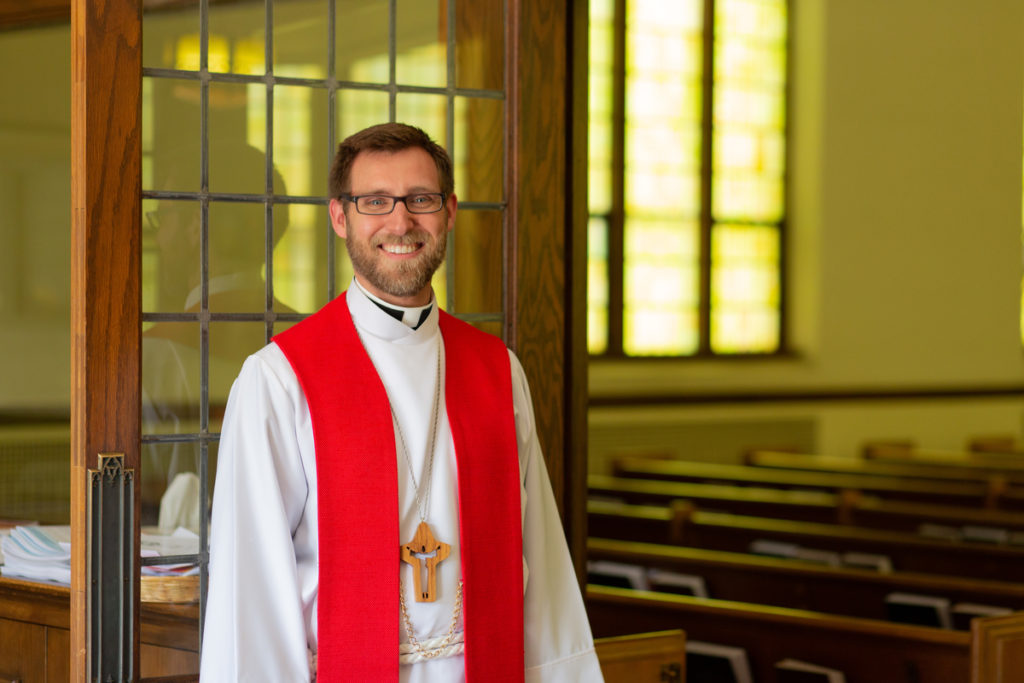Recently, the ELCA posted the results of a DEIA (Diversity, Equity, Inclusion, and Accessibility) Audit1 which was authorized by the Churchwide Assembly. The audit laid out its findings and made numerous recommendations for the church to implement practically and constitutionally.
It would seem as though a move towards DEIA would be uncontroversial. If you take the traditional meaning of each of those words, arguably every congregation would seek to be: diverse as the Gospel is for all people; equitable as God is just and fair; inclusive as, again, the Gospel is for all people; and accessible as we are called to be hospitable and welcoming. However, one of the great tricks of the postmodern world is to take common words and redefine them to mean something different. DEIA in the current secular fashion is less about including everyone and more about pushing out those who are labeled oppressors—usually heterosexual, white men. And while the audit does go to great pains to try and urge a DEIA policy which is rooted in biblical thought2, I cannot help but see a Trojan horse which seeks to formalize secular DEIA within the church.
I believe this to be the case as I see these recommendations centering the church’s focus on DEIA and moving it completely away from its God-given mission to spread the gospel. I hope to show this in four points.
#1. The approach is top down. Don’t take my word for it. I quote the DEIA report itself, “ELCA’s leadership needs to be more vocal, consistent and strong on expressing commitment to, and visibly advancing, DEIA, from the top down.”3 Right off the bat, we see that this implementation is not a grass roots movement which most lay people embrace and are calling for. This is an imposition of thought and practice that begins at the top and is forced upon the whole church, including recommendations for punitive measures for those who do not comply.4 Such practice does not exactly have a good track record of success historically and actually ends up being divisive and counter-productive.
#2. It shifts the primary focus of the church inward instead of outward. Not that many churches have escaped the problem of naval gazing, but this movement reinforces the tendency to focus on “us.” What do we look like? Are we making sure we have proper representation across all groups within our church? One might argue that this will force the church to look outward in order to check the appropriate boxes. It is a legitimate argument, but its practical application has been an abject failure within the ELCA for decades already. What makes us think it will change this time?
#3. It’s the wrong metric to measure congregation viability and engagement. Here is a suggestion from the audit: “Those incentives might include granting congregations with stellar DEIA achievements greater voting power at the Assemblies, as a form of enhanced membership, or conditioning any grants or other financial assistance to congregations on compliance with the Recommended Minimum DEIA Standards.5” Grant incentives to congregations with stellar DEIA scores, but not to congregations who are actively feeding the hungry, clothing the naked, giving drink to the thirsty, and visiting the prisoners? Granting incentives to congregations with stellar DEIA scores instead of congregations who are growing in number? Granting incentives to congregations with stellar DEIA scores but not to congregations who are actively engaged in their communities and truly making an impact in those communities through their ministries? This is a bit more worldly, but…granting incentives to congregations with stellar DEIA scores but not to congregations who give big benevolence dollars to the synod? Need I go on?
#4 And probably the most damning. When the prophet Samuel went to anoint a son of Jesse to be the next king of Israel, a very interesting scenario plays out. As Samuel approaches the sons, he gazes upon their appearance and makes judgments. Time and again, Samuel is met with this response or a similar one, “Do not look on his appearance or on the height of his stature, because I have rejected him; for the Lord does not see as mortals see; they look on the outward appearance, but the Lord looks on the heart.” This is not simply a truism of the Old Testament. It particularly is emphasized in the New Testament as the result of encountering the overwhelming grace and love of God. The human heart changes from looking inward (classical definition of sin) to looking outward towards God and neighbor–in that order. DEIA does not look upon the human heart, but upon outward characteristics. It completely reverses the stance God takes throughout the Scriptures. It must be rejected on this basis alone. To continue down the path of implementation will resort to nothing less than a disaster.




















As a 75 year old white life long Lutheran, I found that the ELCA implemented policies that made me move on to a more Luther like version of the church. What would Luther say about the DEIA policies. Your assessment of Samuel is very appropriate. “DEIA does not look upon the human heart, but upon outward characteristics. It completely reverses the stance God takes throughout the Scriptures. It must be rejected on this basis alone. To continue down the path of implementation will resort to nothing less than a disaster.” Thank you for this paper, it mirrors what my heart has been saying for far too long, now almost twenty years in the making of policy failures driven by the so called leaders of the ELCA.
I’ve visited with several people who are walking through the DEIA emphasis in their workplaces. I found it interesting that the kinds of training and shaping of the culture desired by human resources was in some sense limited by the bottom line of the company. One nurse remarked, “we have three-hour sessions – they don’t want to pay us for anything more.”
The self-defeating and lamentable nature of this endeavor will be that it becomes the proverbial “unfunded mandate”. Pastors and congregations will be directed to use their limited continuing education resources and time to pursue the building of a society based around some late 20th century/early 21st century developments to the ideas of peace and justice.
Yet it is indeed necessary that it shall be so. DEIA has become the New Gospel to be believed and to be carried to all nations beginning from Chicago. The fervor of its disciples is every bit as real and as lifelong as our own commitment to the Wonderful Announcement that Jesus Christ has set us free from sin, death, the devil, hell and the law.
As a member of LCMC, I pray that we can work together to build up our pastors and congregations to be there for our brothers and sisters in Christ. We are one of several church organizations that has a responsibility for the ongoing outreach to those whose eyes and ears will be opened up to the reality of the situation.
For at the end of the day, the New Gospel is not a good report in any manner. The directives are simply an unforgiving and demanding New Law that cannot provide any comfort, hope or confidence. DEIA says do this, and it can never be fulfilled. Jesus Christ says believe in Me, and everything is already completed.